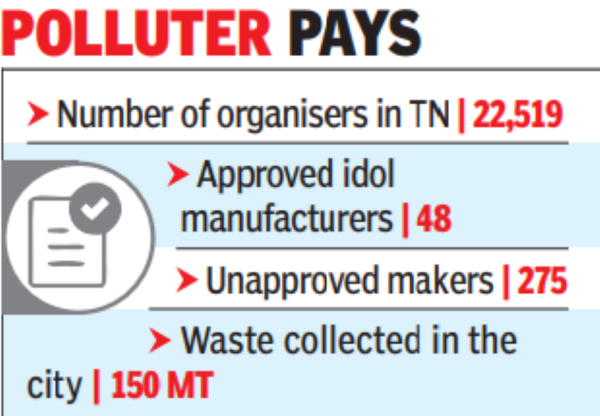“Since no fees are collected now, the burden of cleaning up falls squarely on the government and local bodies. Such practices negate the polluter pays principle,” said justice Pushpa Sathyanarayana and Satyagopal Korlapati.

By remitting a fee upfront, the cleaning burden and restoration of the waterbodies is borne by the associations, agencies or individuals permitted to immerse idols in designated locations, said the tribunal. It also ordered all district collectors in Tamil Nadu to use this amount for maintenance of water bodies.
The tribunal has directed the committee, comprising representatives from state and central agencies, to organise a Vinayaka idol-related meeting six months prior to the festival every year to finalise the locations for immersion, penalties, manufacturing standards etc and advertise well in advance.
Besides this, the committee has been directed to strictly implement other CPCB guidelines pertaining to ban on plaster of paris for making idols, thermocol, synthetic dyes, single-use plastics and harmful chemicals for decoration of idols and pandals.
Last year, I Hariharan, a resident of Pudupet in Anna Salai, filed a case stating that though revised CPCB guidelines are comprehensive, authorities failed to implement it. After NGT’s intervention, the state noticed that there were 275 unapproved idol manufacturers and in September, released the list of 301 locations where idols can be immersed.
However, Tamil Nadu Pollution Control Board (TNPCB) reports confirm that wherever large idols were immersed, particularly in urban areas, water bodies were polluted and a large quantities of idol remnants were recovered. For instance, in Chennai, 150 metric tons of waste were removed at four beaches in Pattinapakkam, Kasimedu, Palavakkam and Thiruvottiyur.